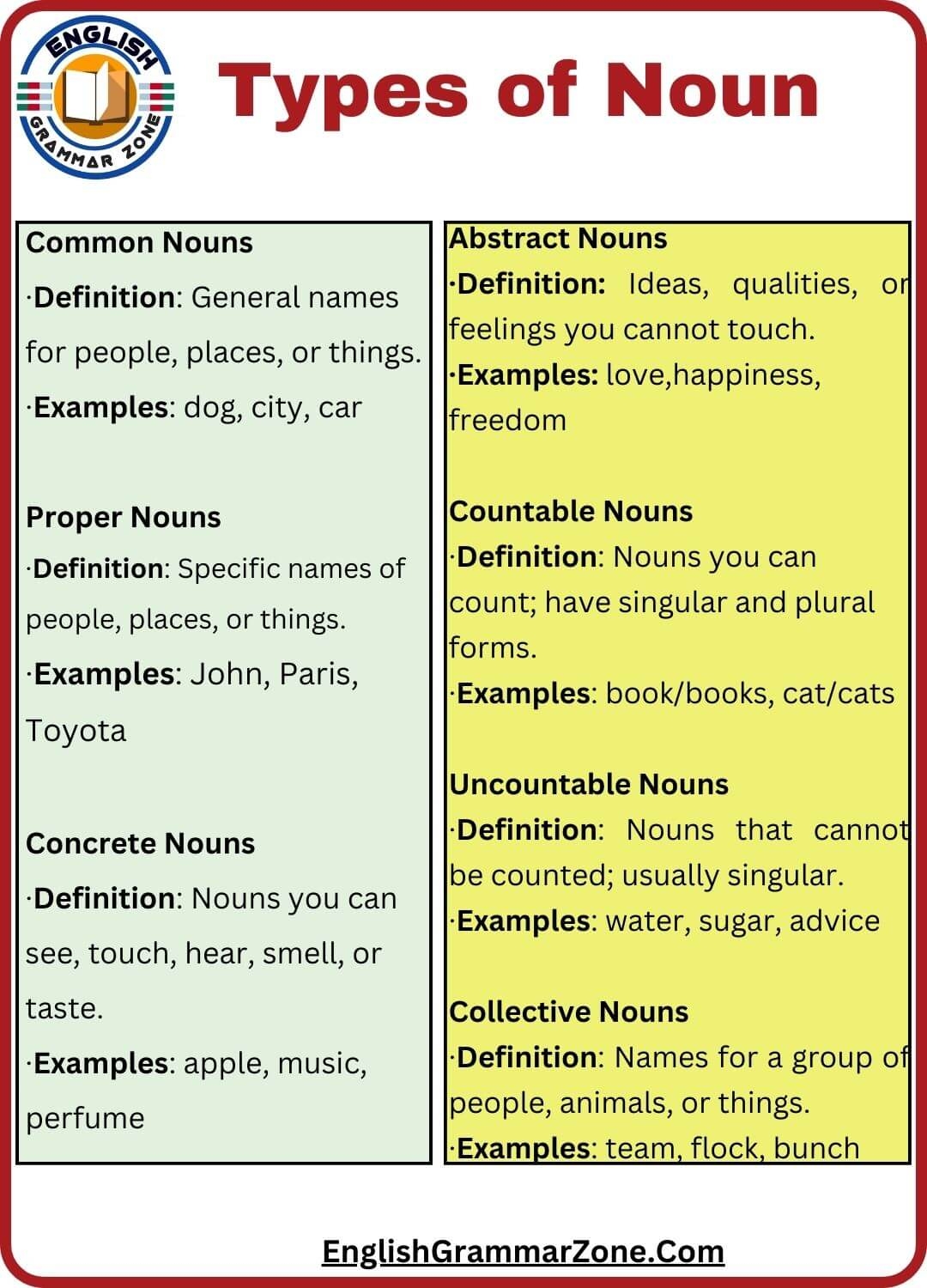Nouns are words that are used to identify people, places, things, or ideas. There are several different types of nouns that serve different purposes in a sentence. Understanding the different types of nouns can help improve your writing and communication skills.
In English grammar, nouns can be categorized into different types based on their functions and forms. These types include common nouns, proper nouns, concrete nouns, abstract nouns, and collective nouns. Each type of noun serves a specific role in a sentence and is used in different contexts.
Types of Nouns with Examples
1. Common Nouns: Common nouns are general names for people, places, things, or ideas. They are not capitalized unless they are at the beginning of a sentence. Examples of common nouns include: chair, city, dog, table, book.
2. Proper Nouns: Proper nouns are specific names for people, places, or things and are always capitalized. Examples of proper nouns include: John, Paris, Coca-Cola, The Great Gatsby, Monday.
3. Concrete Nouns: Concrete nouns refer to tangible things that can be perceived through the five senses. Examples of concrete nouns include: apple, car, house, rock, perfume.
4. Abstract Nouns: Abstract nouns refer to ideas, concepts, or emotions that cannot be physically experienced. Examples of abstract nouns include: love, happiness, freedom, justice, beauty.
5. Collective Nouns: Collective nouns refer to groups of people, animals, or things. Examples of collective nouns include: team, flock, herd, family, jury.
Understanding the different types of nouns can help you communicate more effectively and accurately. By using the appropriate type of noun in your writing, you can convey your ideas more clearly and create more engaging sentences. So, next time you are writing a sentence, pay attention to the type of noun you are using and choose the one that best fits the context.
